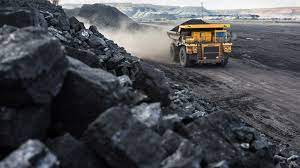Sydney January 30 2023: Asia’s seaborne thermal coal markets are losing heat, with both prices and volumes declining as winter demand passes and Europe’s energy crisis eases.
Prices of the main traded grades for coal used in power plants dropped to their lowest in months last week, and to the weakest in a year in the case of one of the major Australian varieties.
Australian coal at Newcastle Port with an energy value of 5,500 kilocalories per kg (kcal/kg) , as assessed by commodity price reporting agency Argus, slipped to $129.87 a tonne in the week to Jan. 27, the lowest since the week to Jan. 21, 2022.
This grade of coal is most commonly bought by Indian utilities, and was the preferred Australian thermal grade among Chinese buyers prior to Beijing’s unofficial ban on Australian cargoes, imposed amid a diplomatic dispute in mid-2020.
While the Chinese ban has been lifted, it’s unlikely that buyers will flock back to Australian thermal coal, given the availability of cheaper, and similar quality, coal from Russia.
The higher quality 6,000 kcal/kg Newcastle grade also dropped last week, with the index ending at $307.47 a tonne, the lowest since April and 31% below the record high of $442.89 reached in early September.
The price of Newcastle 6,000 kcal/kg physical cargoes compiled by globalCOAL was even weaker, ending last week at $294 a tonne, dropping below $300 for the first time since April last year.
This grade is more commonly purchased by buyers in Japan and South Korea, usually on a contract basis, meaning the spot market accounts for only a small portion of overall volumes.
The weakness in prices wasn’t limited to Australian thermal coal, with Indonesian grades also dropping.
Indonesia is the world’s largest exporter of thermal coal, while Australia ranks second and Russia third.
Lower quality Indonesian coal with an energy value of 4,200 kcal/kg ended last week at $80.39 a tonne, the lowest since early September.
This grade is preferred by Chinese utilities for its low sulphur and ash content, and is also sought by Indian power plants as it is cheaper than alternatives from Australia and South Africa.
Russian thermal coal from Vostochny port, which is largely being bought by China after Japan curbed imports following Russia’s invasion of Ukraine, has also been weakening.
The price dropped to $157 a tonne in mid-January, the lowest since December last year.
VOLUMES SLIP
The softer prices for thermal coal are occurring as demand for seaborne cargoes appears to be weakening among Asia’s top two importing nations.
China, the world’s biggest coal importer, is forecast to import 23.96 million tonnes of all grades in January, down from 28.33 million in December, according to data compiled by commodity analysts Kpler.
If January’s final arrivals are in line with Kpler’s estimate, it will be the weakest month for Chinese imports since August.
India, the second-ranked importer, is expected to land 16.20 million tonnes in January, roughly in line with December’s 16.22 million, but it’s worth noting that December was the weakest month for imports since February 2022.
Imports by Japan and South Korea, the third- and fourth-biggest coal importers in Asia, appear to be slightly stronger in January than in December.
However, January is historically a strong month for the two North Asian countries, with imports falling away in subsequent months as the peak winter demand period passes.
Overall, the picture from both softer prices and volumes is that Asia’s coal demand remains solid, but the froth in the market caused by Russia’s invasion of Ukraine and the subsequent threat to Europe’s energy supplies appears to be evaporating.










